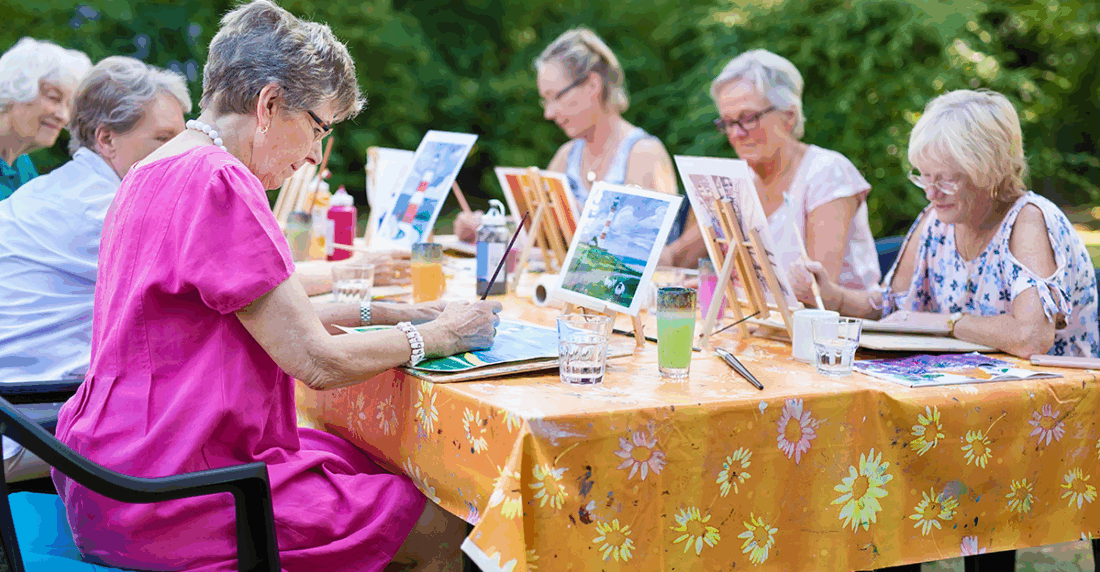As people age, the loss of loved ones-spouses, siblings, or lifelong friends-can become a deeply painful and unfortunately more frequent part of life. For seniors, coping with grief is not only an emotional challenge but also a risk factor for isolation, depression, and declining health.

Engaging in meaningful activities can play a crucial role in helping seniors navigate grief and rebuild their sense of purpose and connection. Read on.
Creative Expression through Art and Writing
Artistic outlets offer a powerful way for seniors to process emotions. Painting, drawing, crafting, or even adult coloring can soothe anxiety and provide a visual way to honor memories. Writing helps seniors articulate their grief and preserve cherished memories, whether through:
- journaling
- poetry
- memoir-style storytelling
Many community centers and libraries offer creative workshops tailored for older adults, which also foster social interaction.
Physical Activity and Mind-Body Practices
Regular physical movement helps release endorphins, the body’s natural mood boosters. Some activities are low-impact ways for seniors to stay active and engaged, such as:
- Walking groups
- gentle yoga
- tai chi
- water aerobics classes
Mind-body practices, in particular, help reduce stress and promote emotional balance. These activities can also provide structure to the day, an important aspect of healing after a loss.
Volunteering and Acts of Service
Helping others can be a deeply therapeutic way to cope with grief. Seniors may find comfort and renewed purpose through volunteering-whether:
- reading to children
- working with animal shelters
- assisting at community food banks
Giving back redirects focus outward and nurtures a sense of value and connection with others.
Pet Companionship
Caring for a pet can ease feelings of loneliness and create a new source of companionship. Studies show that animals offer emotional support and routine.
This can be especially beneficial for someone adjusting to life without a loved one. Local shelters often have programs to match seniors with senior pets, which can be easier to manage than young animals.
Support Groups and Grief Counseling
While informal support from friends and family is invaluable, structured grief support groups offer a space where seniors can share and listen in a setting of mutual understanding. Many senior centers, religious institutions, and health organizations provide these services, sometimes even online.
One-on-one counseling with a therapist specializing in grief can also be a critical tool for those experiencing prolonged or complicated grief. Visit some facilities to learn more, especially about coping with loss in your 70s.
Engaging with Spiritual or Cultural Practices
Spiritual traditions, rituals, and community gatherings can help seniors find comfort, continuity, and meaning. Whether through:
- prayer
- meditation
- attending services
- engaging with cultural customs around remembrance
These practices can offer profound emotional support during a time of loss.
Make a Loss, Much More Bearable
Loss is an inevitable part of aging, but it doesn’t have to define a senior’s remaining years. With the right activities and support systems, grieving seniors can reconnect with life, find joy in new experiences, and cultivate resilience. Encouraging participation in meaningful, accessible, and enjoyable activities is key to enhancing their quality of life and emotional well-being.
If you want to read more articles, visit our blog.



